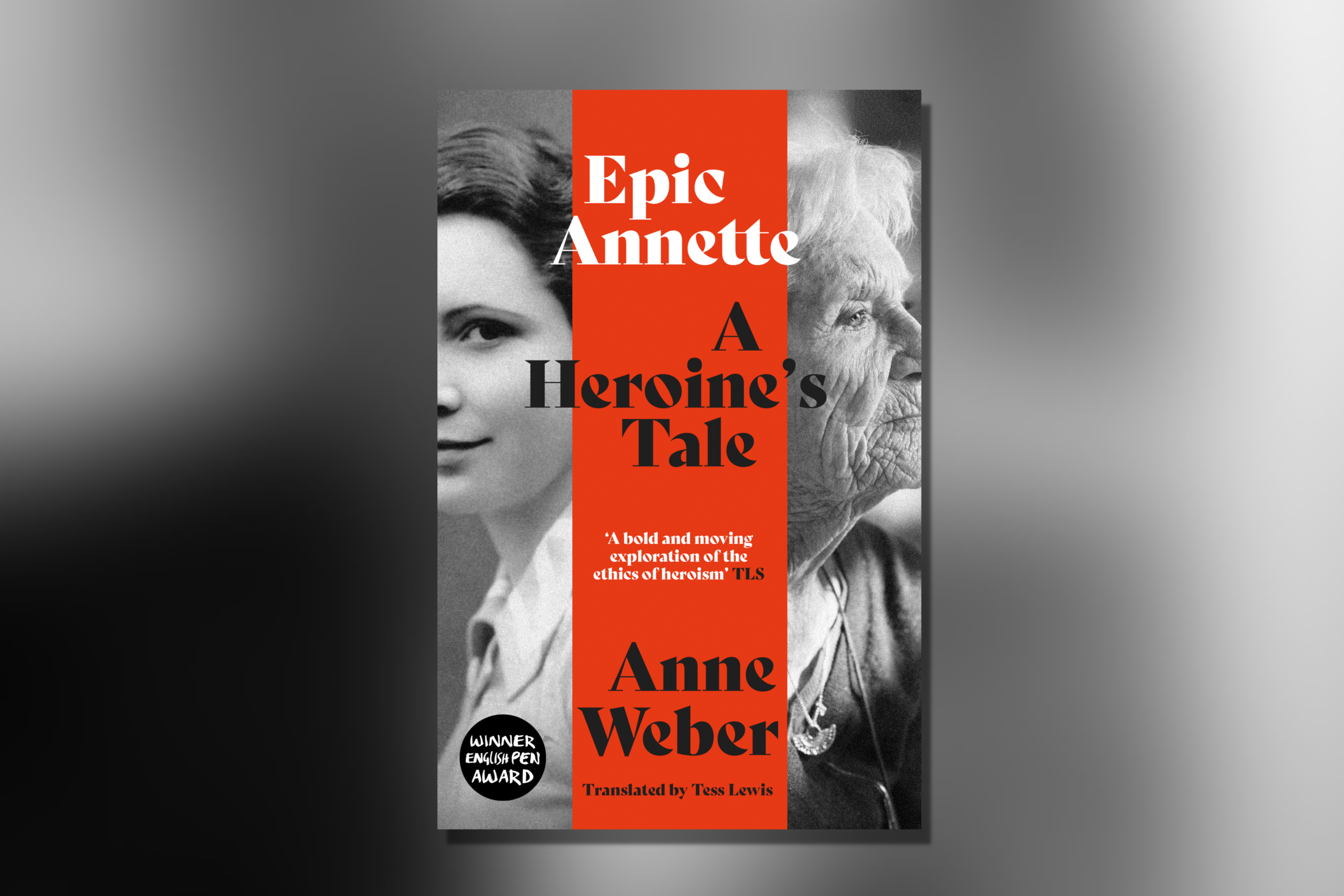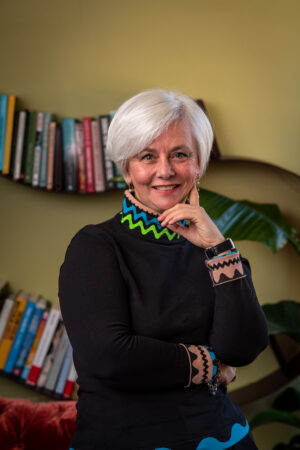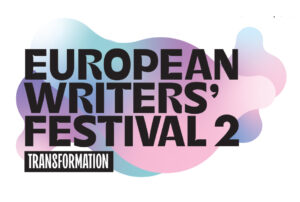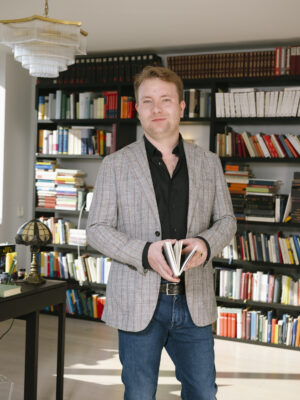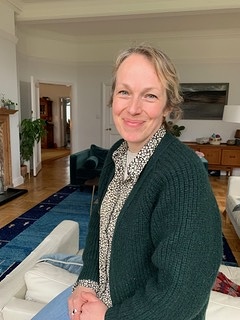To celebrate the new English translation of Epic Annette by Anne Weber, Ruth Martin speaks with the author, the translator and the publisher of this exceptional prose poem.
Anne Weber first met Anne Beaumanoir, the real-life heroine of Epic Annette, at a film festival in the South of France. And as she got to know the 94-year-old ‘Annette’ and read her autobiography, she began to toy with the idea of writing her own book about this extraordinary woman. A member of the French Resistance, Annette saved the lives of two Jewish children during the Nazi occupation of Paris. She went on to become a doctor, and devoted her life to fighting for justice and equality. ‘The only question,’ as Anne Weber told the Journal Frankfurt in 2020, ‘was this: how does something become literature without using fiction? I didn’t want to write a biography – and then I remembered the ancient form of the epic, in which the great deeds of heroes are recounted and given a rhythm.’ The result was Annette, ein Heldinnenepos: an epic poem that tells Annette’s life story in free verse.
At the time, Annette’s story was not well-known in France, though she had been honoured as Righteous Among the Nations by Yad Vashem in the 1990s. Other, more prominent female members of the French Resistance have recently been given the recognition they deserve by the French government. But, as Anne Weber says: ‘It seems to me that we still hear too seldom anything about the lives of the small cogs in the resistance machine – people who were ultimately risking just as much.’
‘The only question,’ as Anne Weber told the Journal Frankfurt in 2020, ‘was this: how does something become literature without using fiction? I didn’t want to write a biography – and then I remembered the ancient form of the epic, in which the great deeds of heroes are recounted and given a rhythm.’ The result was Annette, ein Heldinnenepos: an epic poem that tells Annette’s life story in free verse.
In fact, there was another reason Annette had never been recognised in France: she later joined the Algerian War of Independence on the Algerian side, and was given a ten-year prison sentence for treachery by the French authorities. Following a daring escape, she spent decades in exile, separated from her children – all the more like a classical hero whose personal happiness is sacrificed for a greater aim.
For more on Anne Beaumanoir’s fascinating life, you can hear Anne Weber talking to Sam Leith about Epic Annette on the Spectator’s Book Club podcast.
Translating Epic Annette
The story of the book’s origins and its rise to international success is just as surprising as that of its heroine. Sparked by that chance encounter at a film festival, it was published by Matthes & Seitz in 2020. The first translation – into French – was done by the author herself, who also works as a translator between French and German. Though as she points out: ‘When I’m translating my own work, of course, it is a little different. I can be much freer with the text.’
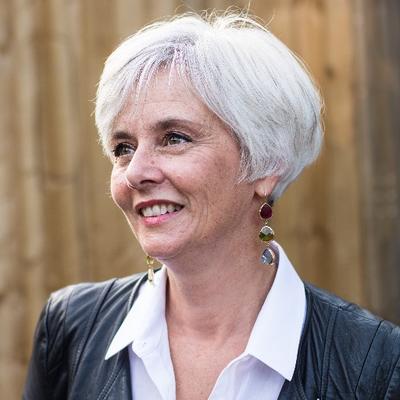
Photograph © Sarah Hickson
The English translation by Tess Lewis is now being published by Indigo Press. The publisher’s founder and editor Susie Nicklin says of the acquisition: ‘In the autumn of 2020, I asked all my German publishing friends, which book will win the German Book Prize this year? And everyone said, I know this sounds unlikely but I think it will be an epic poem about a heroine of the French Resistance, written by a German author who lives in France. So I became intrigued, and was able to approach the publishers very quickly after the win was announced.’

Photograph © Sara Schatz
Tess Lewis was asked to provide a sample translation; Susie wanted a translator who could work from both French and German editions. And when Tess started work on the book itself, she says: ‘I would read each line in one version and then the other. With the French, there’s a lighter touch, there’s a bit more humour in it. But they’re very close; where they differ, it’s all shades and nuance, except for cultural or historical markers that don’t need to be explained in the French, but do in the German, and vice versa. There were a couple of passages where I said to Anne, which one do you prefer? And she always said: whichever you think will serve the book in English better. There are lines in there that are only in the French version.’
Rights to the book have so far been sold in fourteen languages, and Anne Weber has also been in touch with many of the book’s other translators. ‘The exchange with the translators was a very enriching experience,’ she says. ‘They asked questions that I answered, and those questions often shed new light on the text. Since translators spend so much more time with a text than anyone else, they also often notice inconsistencies, as I know from my own translations. And so I was almost a little afraid of the translators, though that turned out to be completely unnecessary. The best thing was the three days that the Europäisches Übersetzer-Kollegium in Straelen organised with eight of the Annette translators, although unfortunately the sessions could only take place online due to Covid. We had several days to exchange ideas, and the translators were able to discuss things among themselves, too. It was fascinating, because the questions that come up are different for every language.’
In choosing to write an epic poem, Anne seems to have joined a minor revival of the form, and Tess had other recent works to refer to when planning her translation.
In choosing to write an epic poem, Anne seems to have joined a minor revival of the form, and Tess had other recent works to refer to when planning her translation. ‘There were three or four novels in very free blank verse that came out at about that time, including The Perfect Nine by Ngũgĩ wa Thiong’o, so I looked at those, and I looked at Maria Dahvana Headley’s new translation of Beowulf and at Emily Wilson’s new Odyssey.
‘The hard part was working out the line breaks: considering the final word, keeping the balance between rhythm, line length, the order in which the reader gets the information, and what words in the line are being stressed. At first I couldn’t quite get it – I tried different line lengths, I tried it in iambic pentameter, and as straight prose. It lost a lot of energy as prose. When Anne does a reading, if you’re really listening you’ll notice there’s a very slight pause at the end of each line – and for me that reinforced the importance of paying attention to the line endings, and getting them right.’
International acclaim
When the book came out in German, Tess admits that she doubted its chances of finding an English-language publisher, and praises as ‘brave’ the decision by Indigo Press to publish ‘not just a translation, but a novel in verse’.
But for Susie Nicklin, who read the book in French before buying the rights, it was an obvious choice: ‘The Indigo Press is really all about resistance – we focus on feminism, internationalism and social justice – so this book was just perfect for our list. And it is poignant, emotionally intelligent and intellectual, all at the same time.’
Other international publishers and critics agree. Anne Weber tells me: ‘The book has been very well received everywhere; so far probably best in Italy, where it was nominated for the Premio Strega Europeo. I hope the English translation will open up a much wider audience, because it gives the book the potential to be read all over the world. I also think that Tess’s translation is beautiful, and you can’t overestimate the significance of that for the reception of the book.

I hope the English translation will open up a much wider audience, because it gives the book the potential to be read all over the world. I also think that Tess’s translation is beautiful, and you can’t overestimate the significance of that for the reception of the book.
Anne Weber
‘After that, I’m very excited for the Chinese and Arabic editions. The Chinese publisher asked me to make a little presentation video for a literary festival. When I asked how many people were going to be at this festival, they said that last year, two million people watched online! And of course, I’m excited for the Arabic edition, in part because Anne Beaumanoir entered the Algerian War of Independence on the side of independence, and was sentenced to ten years in prison for it. It will be interesting to see how a life like hers is viewed today by readers in North Africa’s former French colonies.’
Anne Beaumanoir died in March this year at the age of 98. But her story lives on, and is still finding new readers across the world.
Upcoming Event: The Goethe-Institut present, in cooperation with the Institut Français in London, the new English translation of the prose poem Epic Annette by Anne Weber (published by The Indigo Press). Book launch event is on Tuesday 6 September 2022, 7pm at Goethe-Institut, London. Find out more here.

Photograph © Michael Jershov
Ruth Martin is a freelance literary translator whose work includes a wide range of novels, short stories, non-fiction titles and children’s books. She has broad experience of working with publishers in the UK, US and German-speaking countries, and regularly prepares reader’s reports and sample translations. Ruth also leads translation workshops, is a frequent speaker at professional conferences, and is a former co-chair of the Translators Association committee. Find out more about Ruth at http://www.german-to-english-translation.org.

